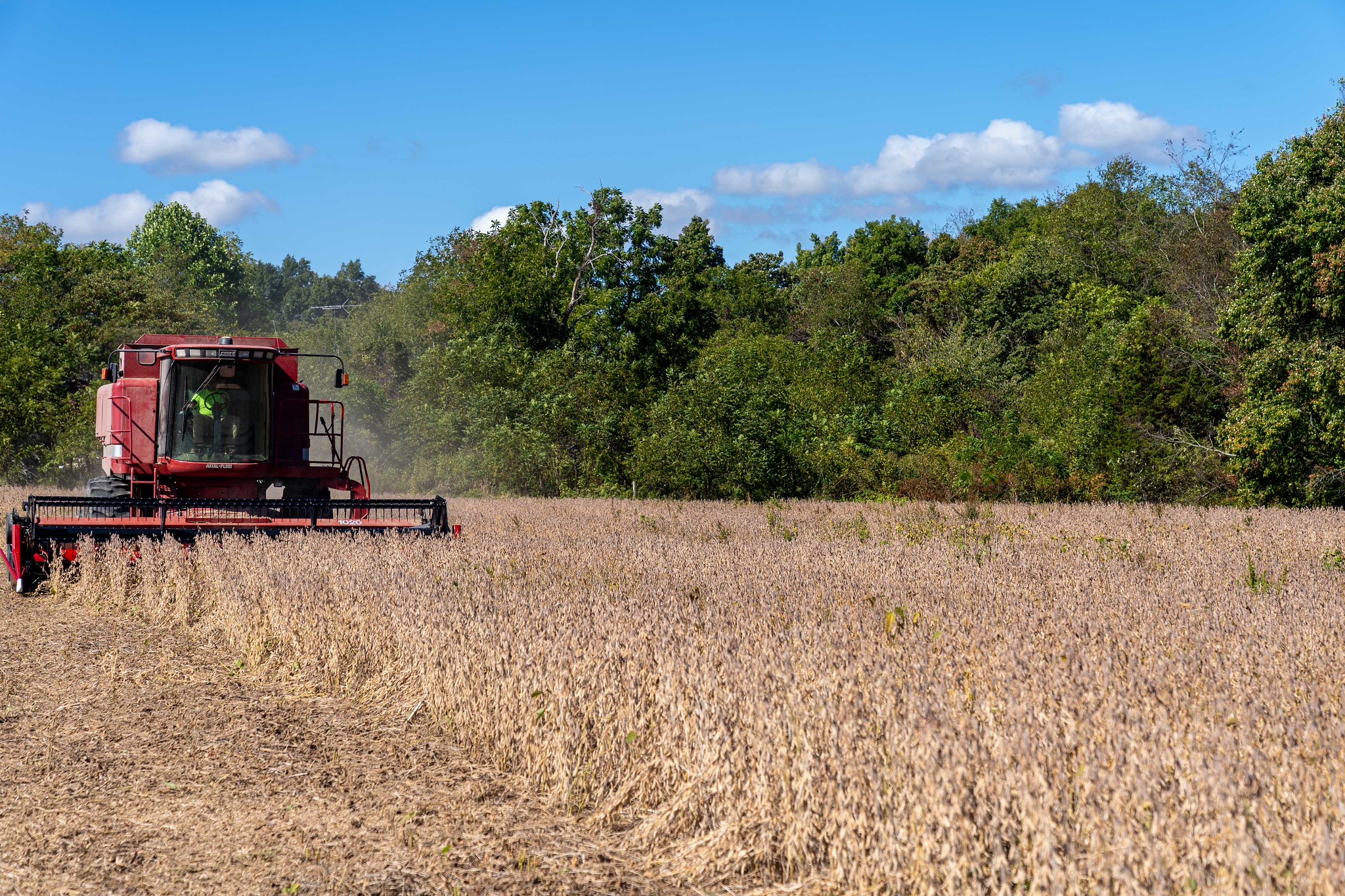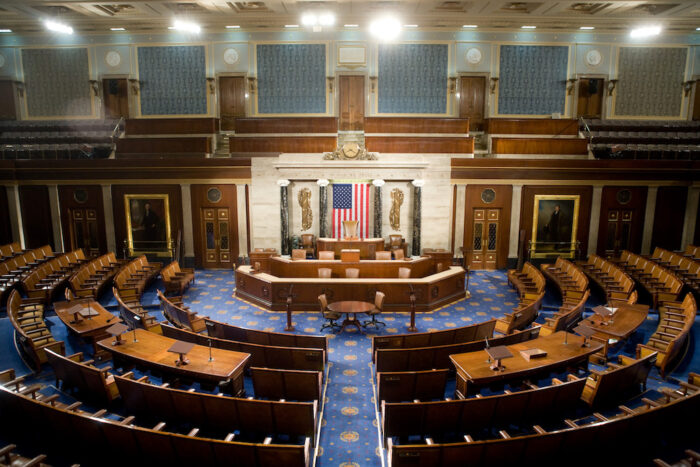The farm bill has expired. Congress is months away from a new version

As the deadline for Congress to enact a new farm bill passed this weekend, staff members of the House and Senate Agriculture committees say it will be months — if not longer — until they reach agreement on a new bill.
By averting a federal shutdown, at least until mid-November, Congress kept some critical government agricultural programs alive. But others will effectively be in limbo until lawmakers pass a new farm bill.
Lawmakers must rewrite the sweeping farm bill every five years to set both policy and funding levels for farm, food and conservation programs. The current farm bill expired at midnight Saturday, but Congress is nowhere near ready to consider a new version.
The House and Senate Agriculture committees have been working over the past year to get input on the new farm bill, with dozens of hearings, field hearings, listening sessions and staff meetings in each chamber. But lawmakers have not yet put forward legislation at the committee level and staff say they are still divided on some of the big-ticket items on the bill.
Republican and Democratic staff from both the House and Senate say both sides want to find a bill that will support farms and farmers, but there is still significant disagreement about major programs, including the “safety net” of payments to farmers, crop insurance and conservation programs.
They do not even have enough consensus on potential changes to ask for a “score” from the Congressional Budget Office — the process of seeing how much different proposals would cost over the course of the farm bill.
“We are all on the same page about wanting to help farmers, but there are definitely some disagreements about the best way to do that,” Emily Pilscott, an economist for the Democratic staff of the House Agriculture Committee, said at a forum last week with the Farm Foundation, a nonpartisan farm policy group.
Another key area of disagreement in the House is the program known as SNAP, a huge spending portion of the farm bill that helps low-income families buy food.
Republicans want to place more limits on the funds — a move that Democrats have warned would doom the farm bill. Congress put some restrictions on SNAP as part of the debt limit legislation.
But House Speaker Kevin McCarthy and other Republicans said afterwards they want more work requirements for SNAP funds. Democrats on the House Agriculture Committee sent a letter to McCarthy in August that said further limits to SNAP could jeopardize the farm bill.
SNAP is considered a mandatory appropriation and would continue at current levels as long as there is an appropriations bill or a continuing resolution to keep the Agriculture Department running.
‘A terrible time to do a farm bill’
The massive five-year farm bill is usually one of the more bipartisan efforts of Congress, at least on the committee level. But farm policy experts say this year’s farm bill has particular challenges — both because of the partisan divide in Congress and because of the current state of the farm economy.
Jonathan Coppess, a professor of agriculture law and policy at the University of Illinois at Urbana-Champaign, said the prospects for the farm bill are in “serious doubt,” given the far-right faction that is holding up legislation in the House.
“We have an incredibly difficult political hurdle in the House and on the House floor,” Coppess said.
“This is a terrible time to do a farm bill,” said Joe Outlaw, an agricultural economist and professor at Texas A&M University.
Outlaw’s concern is not only the political strife in the Capitol but the current farm economy. Relatively high crop prices have masked a tenuous economy for farmers.
“The farm safety net is all about the bad times, and frankly the bad times are coming, they just aren’t here right now,” Outlaw said.
On the Senate side, Democratic and Republican staff are meeting regularly, but there is still a divide on major issues like how to address the farm safety net.
Sen. John Boozman of Arkansas, the top ranking Republican on the Senate Agriculture Committee, has said his chief concern is to help farmers face rising input costs for things like fertilizer and fuel, along with the possibility of lower crop prices.
“Title One support does not reflect the reality on the ground today,” said John Newton, chief economist for the Republicans on the Senate Agriculture Committee, in remarks at the Farm Foundation Forum.
Title One is the section of the farm bill that provides crop subsidies. Newton said Republicans would like to see a “meaningful increase in reference prices,” the amount at which the government will step in and help farmers.
Meanwhile, the economist for the Democratic majority on the Senate Agriculture Committee said he is looking at how the Title One commodity programs and crop insurance work together.
“We are looking closely at program interactions, how programs work together or overlap. The farm safety net — that is where there are some really challenging interactions,” said Steven Wallander, senior economist for the Democratic staff of the Senate Agriculture Committee.
A lengthening deadline
Like many bills on Capitol Hill, the farm bill has some “discretionary” programs, which are set up in the bill but have to be funded through the annual appropriations process.
But the farm bill is unique in that most of its programs have “mandatory” spending. That funding is set in the farm bill itself and is paid out over the next five years, regardless of congressional appropriations. Those mandatory programs include crop subsidies, conservation programs, some forms of crop insurance and SNAP, formally called the Supplemental Nutrition Assistance Program.
Most mandatory programs will continue without any action through the end of the calendar year — delaying some of the urgency for Congress. In recent history, lawmakers have not passed any farm bills before the Sept. 30 deadline.
The 2018 farm bill passed in December, three months after the prior bill expired. And the three farm bills before that each passed in the year following their original deadline.
But Outlaw predicts that if lawmakers do not finish the new farm bill by February, the election cycle will take over and it could be years before they return to the farm bill.
Wallander said he hopes the Senate committee is on a timeline similar to the 2018 farm bill, when lawmakers rolled out legislation in the fall and passed a bill by the end of the year.
Senate Democratic and Republican staff are meeting together regularly. Senate Agriculture Committee Chair Debbie Stabenow, a Democrat from Michigan, and Boozman meet together weekly.
“There is strong bipartisan support for getting this done, we’ve seen that with the chairwoman and ranking member and their experiences working together. We think that strength is something we can leverage towards a finished product,” Wallander told the Farm Foundation Forum.
On the House side, Agriculture Committee Chair Glenn “GT” Thompson, a Republican from Pennsylvania, has said he will not bring a farm bill to the committee until there is scheduled time for debate on the House floor.
That could be a stretch this year, with the House placing a priority on spending bills to fund the government. There are only 25 voting days on the House calendar between now and the end of the calendar year.

U.S. Rep. Andy Harris (R-1st), far left and House Committee on Agriculture Chair Glenn “GT” Thompson (R-Pa.) visited the University of Maryland Eastern Shore in August for a roundtable discussion and listening session on the farm bill. UMES President Heidi M. Anderson and Moses T. Kairo, dean of the UMES School of Agricultural and Natural Sciences, hosted a tour of agricultural areas on campus and facilitated the visit. Photo by Todd Dudek/UMES Agriculture Communication Photographer.
During the August congressional recess, U.S. Rep. Andy Harris (R-1st), who is chair of the House Appropriations Subcommittee on Agriculture, Rural Development, Food and Drug Administration, and Related Agencies, brought Thompson to the campus of the University of Maryland Eastern Shore, in Harris’ district, to meet with campus leaders and tour UMES agricultural facilities.
“Listening to the concerns of America’s producers and consumers is essential as we draft a highly effective farm bill,” Thompson said during his visit, according to a UMES read-out of the proceedings.
During the lawmakers’ visit, UMES President Heidi M. Anderson said that HBCUs are counting on the new farm bill to close agricultural funding disparities between their campuses and other public land-grant colleges.
“All we are asking is to treat us as you do predominantly white institutions in the bill’s funding formula,” she said. “Right that wrong and this country will reap the benefits for years to come.”
Congressional dysfunction and its implications
Without a new farm bill or an extension of the current bill, crop support programs will continue through the end of the calendar year. The conservation programs are extended through 2031 as part of the Inflation Reduction Act.
The conflict over government spending has already slowed the farm bill process. If there had been a government shutdown, committee staff would not have been able to get technical assistance or new reports from the Agriculture Department, and congressional staff would have been operating at a reduced levels.
U.S. Agriculture Secretary Tom Vilsack said during a White House briefing last week that it would be nearly impossible to enact a new farm bill if there are disruptions from a federal shutdown. While Congress averted a shutdown this weekend, the prospect of another is looming in just six weeks.
“It is pretty tough to do if there is a shutdown, you can’t do it,” Vilsack, a former Iowa governor, said.
Josh Kurtz contributed to this report.




 Creative Commons Attribution
Creative Commons Attribution